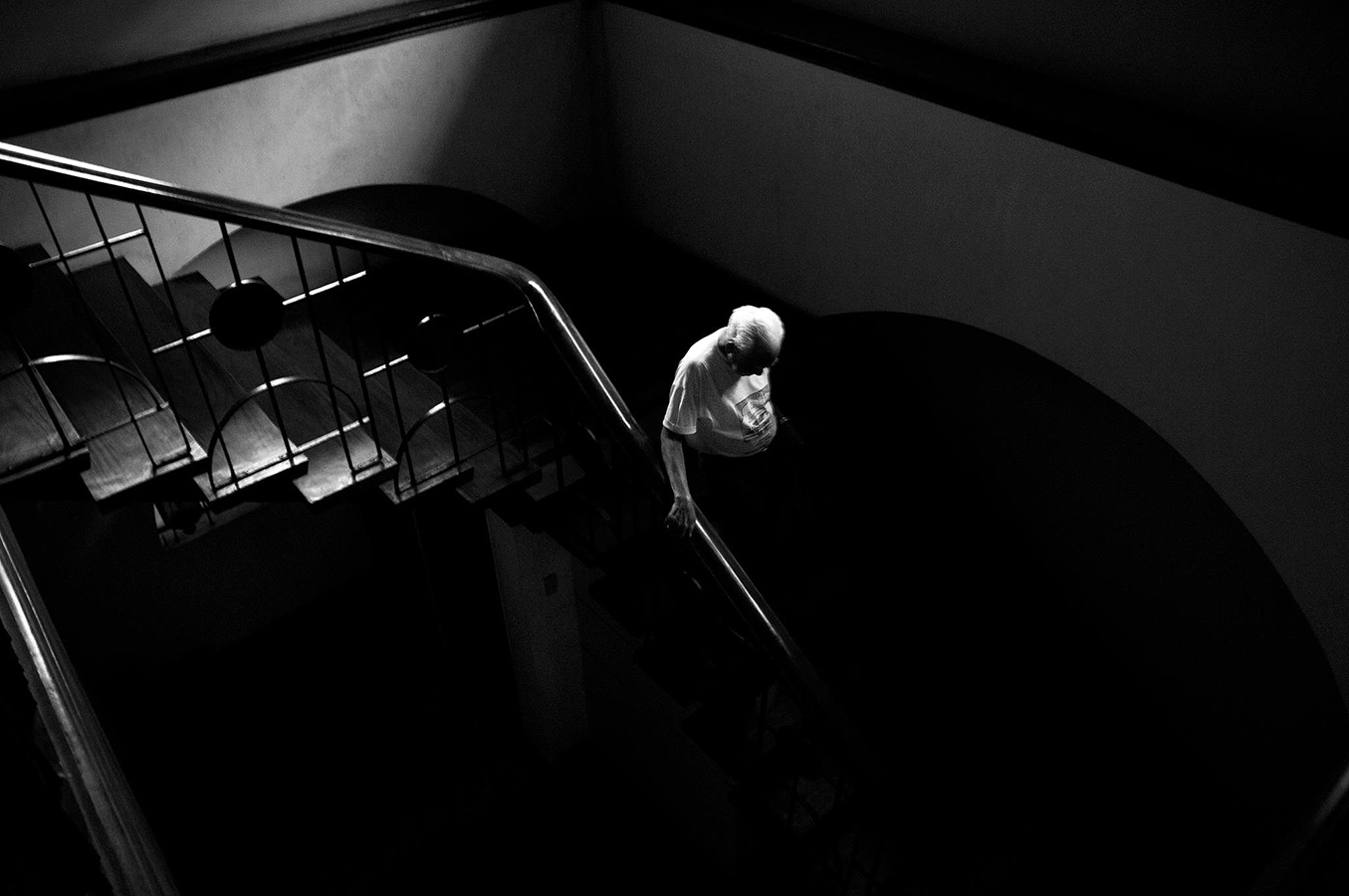
Aging priests in the Philippines are increasingly falling victim to depression and isolation. ROY LAGARDE
There is an emotional toll of being a retired Catholic priest after all.
A worker of the Ephesus Ministry, a Church-based group that caters for elderly and sick diocesan priests, revealed that clergymen who enter retirement suffer from mental depression.
Recalling his experiences during visitations to different retirement homes for priests across the country, Rai Jaramilla said retired priests often face the burden of mental illnesses.
“Their depression may be connected with their unresolved issues [in the past], during their term as Catholic officials,” said Jaramilla, who also serves as secretary of the organization.
“They may also be in denial that they have financial mismanagement, and they are no longer in the limelight of their parishes.”
“When they retired, they lost the attention (of the people) to the young priests. So there’s this resentment, which is part of life,” he said.
Data from the ministry showed that for every 5,000 clergymen across the Philippines, 300 of whom are retired.
Founded in 1992 by Msgr. Sabino Vengco, the Ephesus Ministry and its subsidiary, Kadiwa Para sa Pagkapari Foundation Inc., organizes priest visitations in various dioceses, as well as spiritual retreats for elderly priests throughout the year.
Detached
Rai said retirees are “totally detached” from their family and relatives in their senior living, saying that these implications may begin with their seminarian days.
“When you enter the seminary, you’ll stay there for 10 years. Their orientation, based on my observation, is they treat their family and relatives as ‘dead’ to fight loneliness,” he said.
“They just go out when there’s ordination or when someone dies,” he added.
Compared to the old setup of seminaries before, Rai said divinity schools today are more lenient with restrictions.
“Unlike in the past, seminarians can go out already. Their parents can visit them to get their laundry, there’s mobile phone, and there’s a weekly visit,” he said.
‘Sense of isolation’
Jaramilla said aging priests, especially bedridden ones, are confronted with what he calls the “sense of isolation.”
He said that some elderly priests are feeling that way because of the absence of deep conversation and emotional connection.
This is where the Ephesus Ministry comes in, he said.
“That’s why we conduct visitation of priests… and to also refresh [their memory], for us to know what happened to him when he was still a seminarian until he became a priest,” he said.
Jaramilla said the ministry’s goal is to bring retirees “out from isolation.”
To improve their belongingness in the community, the group conducts different approaches during retreats and visitations.
“We also involve the parishioners so they will know the needs of the old priests,” he said.
Visit, communicate
Manila Auxiliary Bishop Broderick Pabillo admitted that retired Catholic priests are troubled by mood disorders caused by depression.
“It’s normal not just with the priests but even to those with families. If you leave them, they get depressed. So we should still visit and talk with them,” Pabillo said.
Pabillo then encouraged the lay people to visit aging priests in retirement homes. “So that priests will not feel that they are isolated, that they are useless already,” he said.
“The laity can also support them by providing them with their material needs such as medicine,” he added.
Common area
Clinical Pastoral Counselor, Dr. Myrna Joyce Sanchez, stressed the need of having a “common area” in a Bahay Pari in order to ward retirees away from isolation.
“There should be a community living [in retirement homes]. Retirees can’t be completely independent from each other. It is important to build common areas for them to be together,” Sanchez, who experienced priest visitations herself, said.
These common areas, she said, may be in a form of a dining hall or visitors area.
Sanchez also underscored the grave consequences of lack of communication and relationship between senior priests and their family, relatives, and friends.
“They will feel isolated. They will feel abandoned. The retirees still want to connect with them… They want to be visited,” she said.
By Joel Cristobal
August 3, 2018
Manila, Philippines







